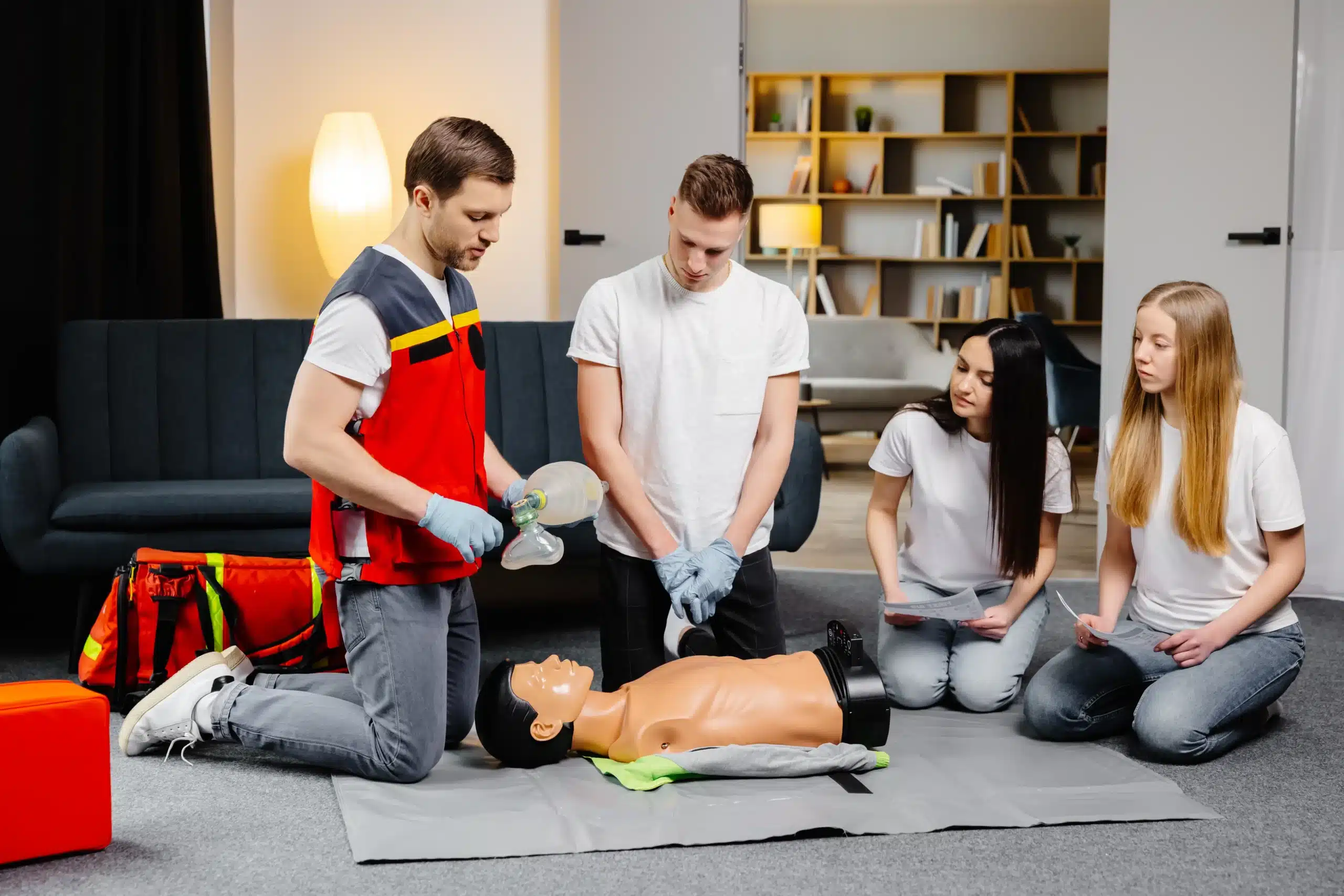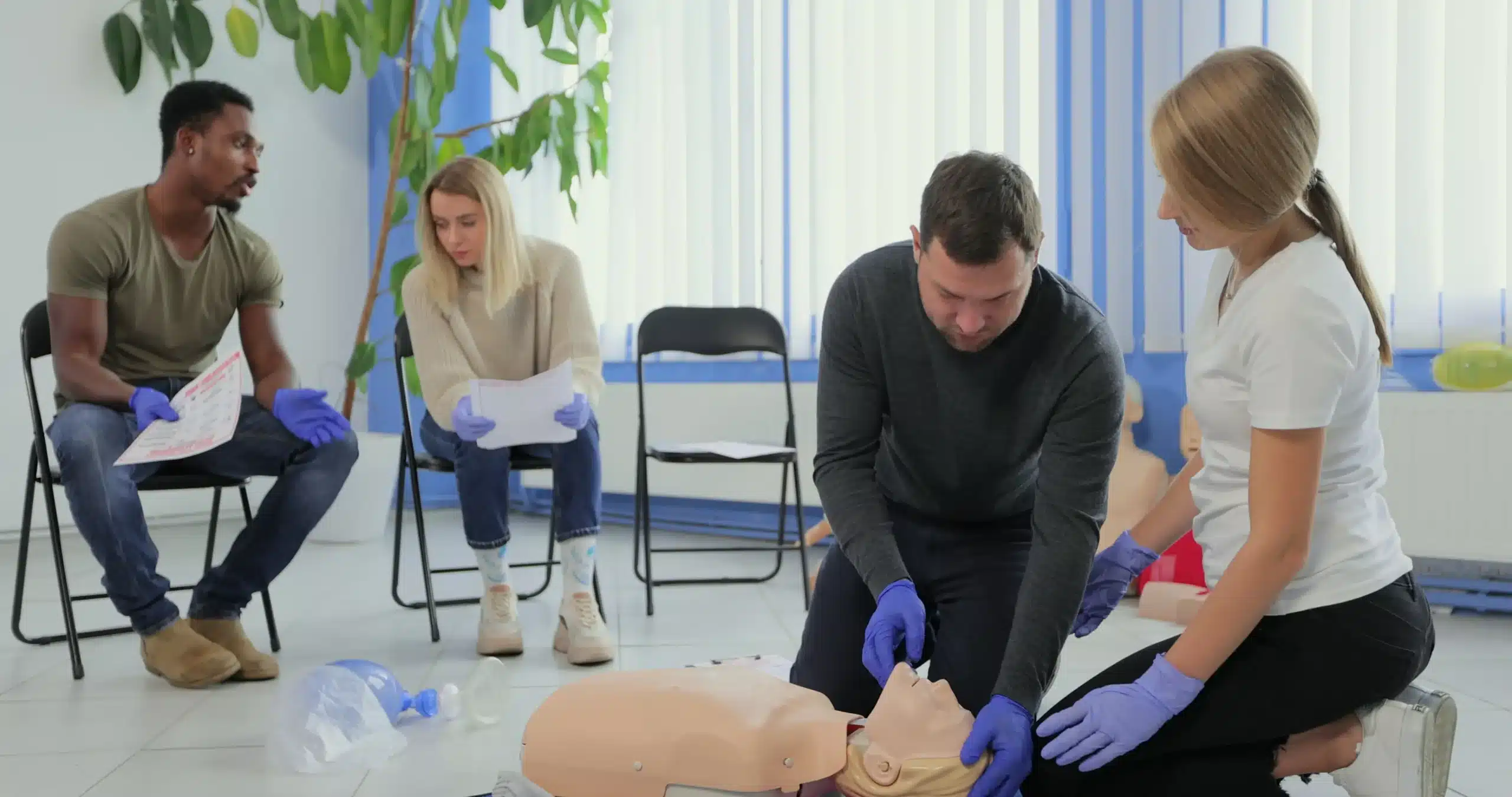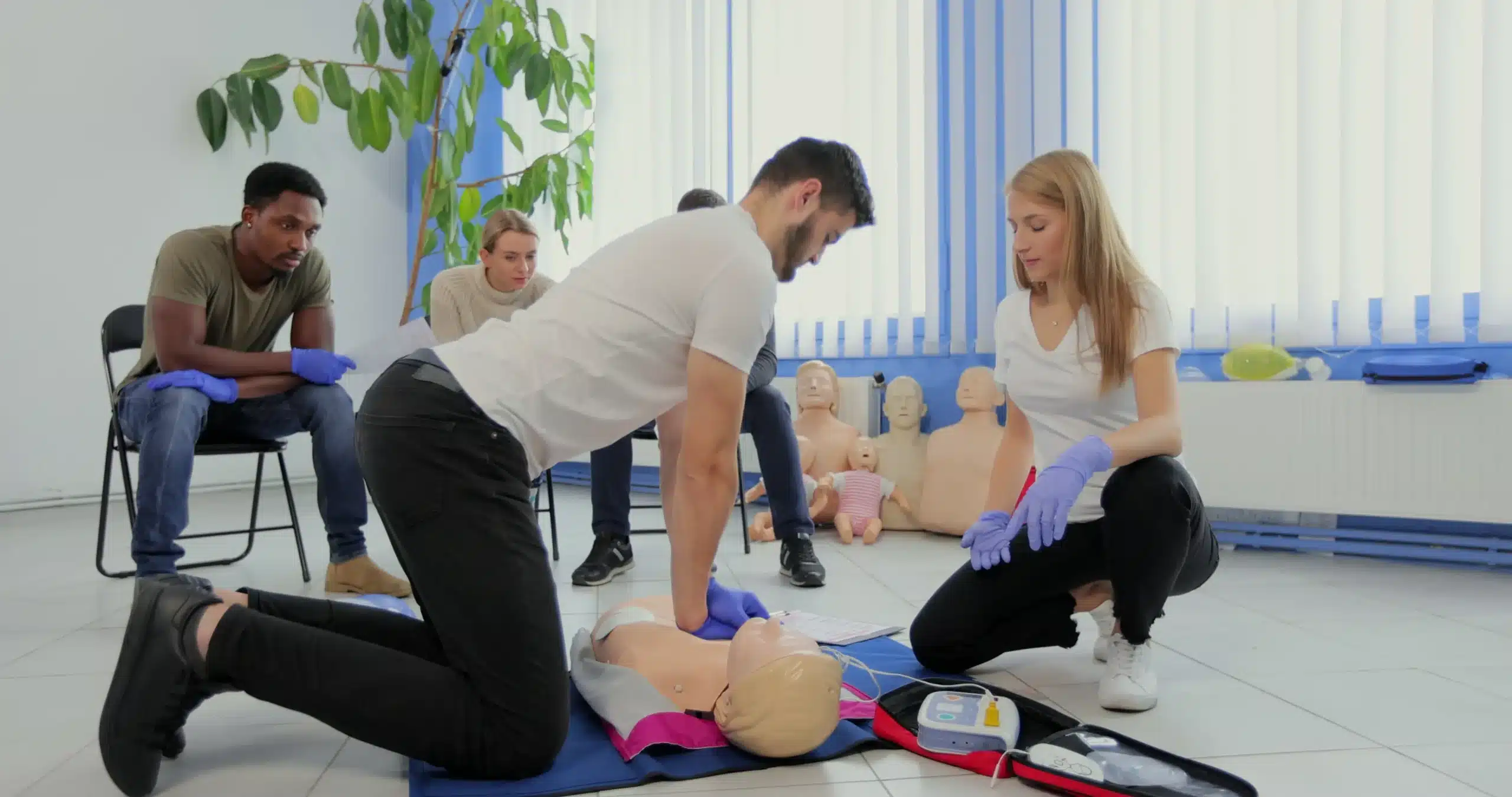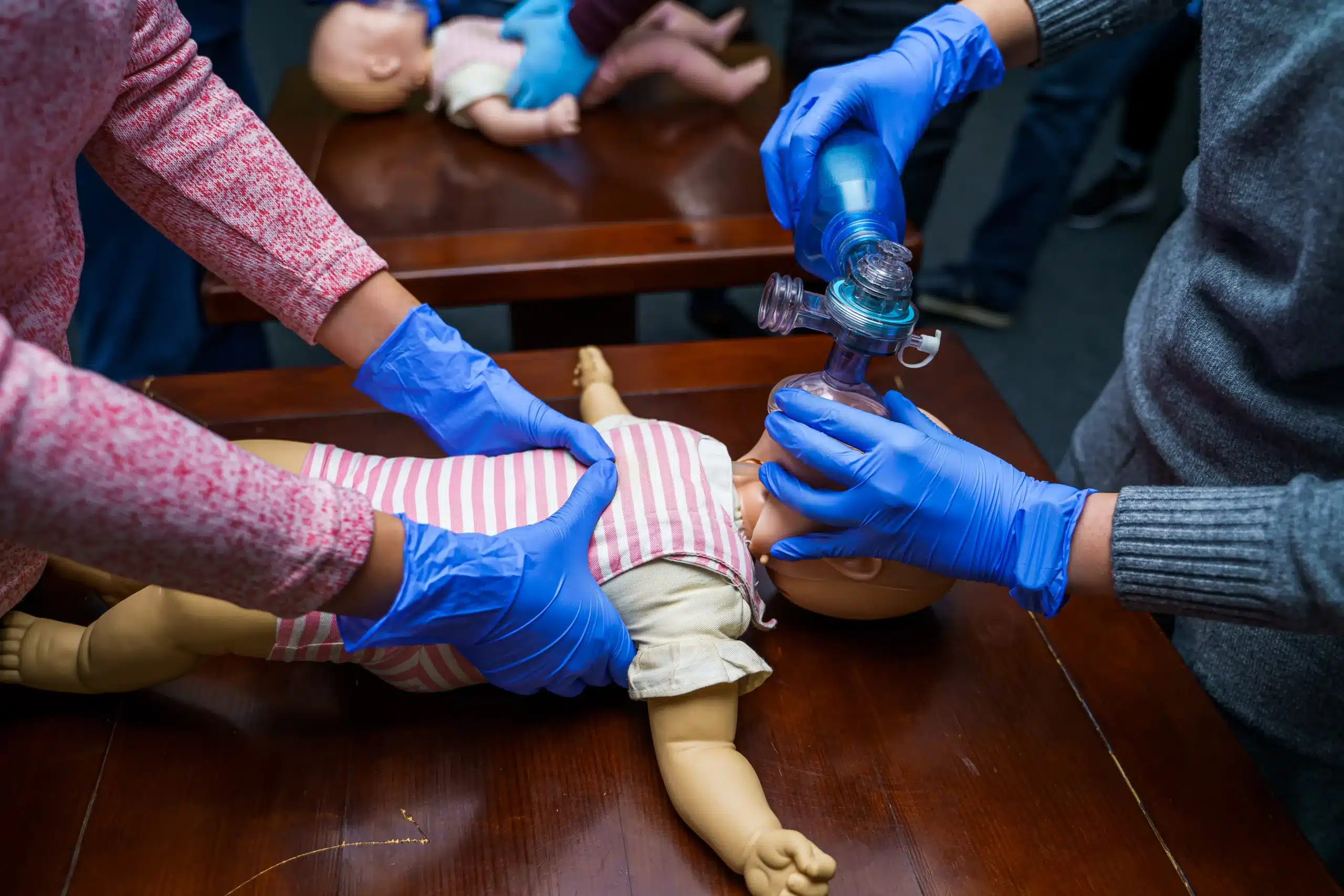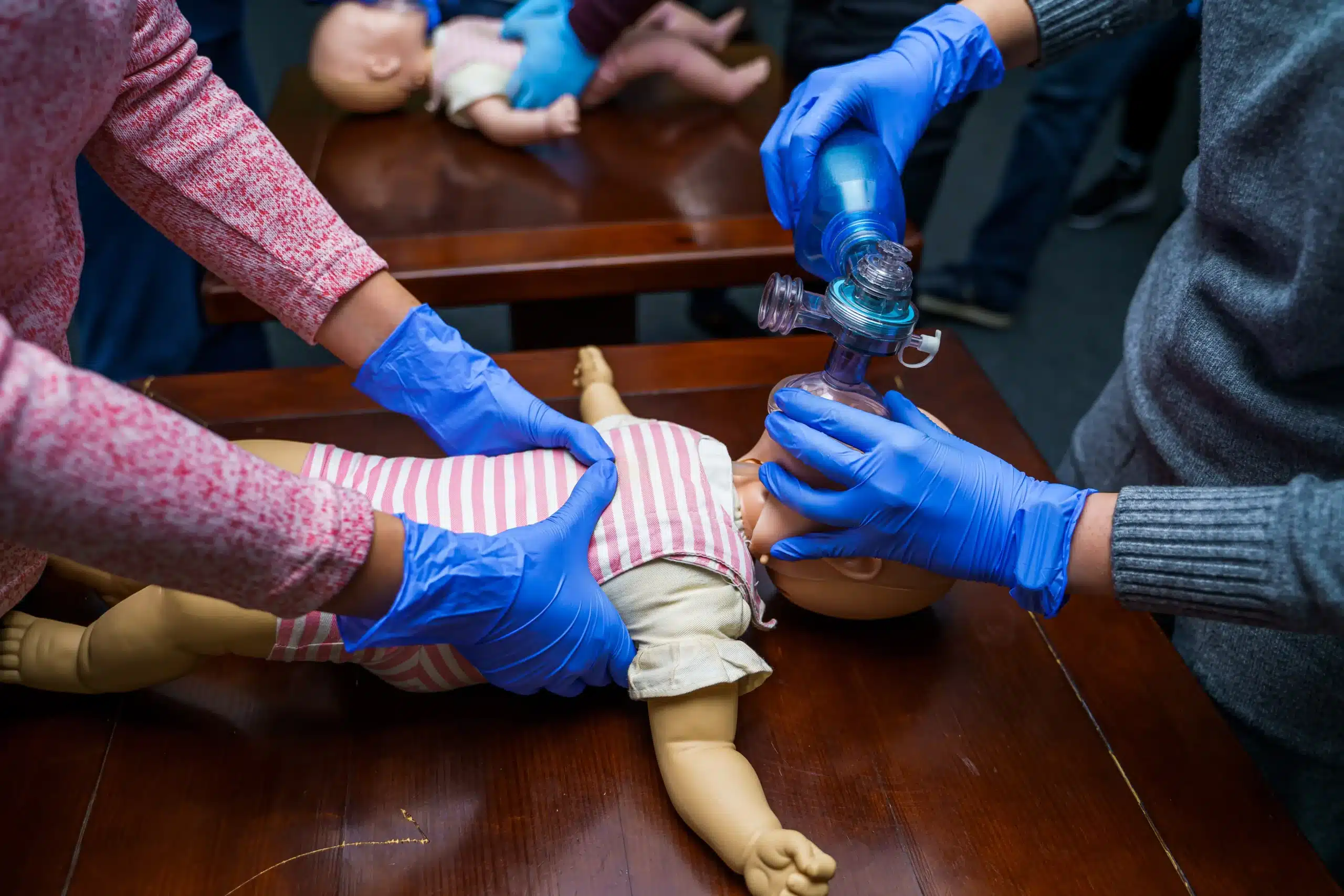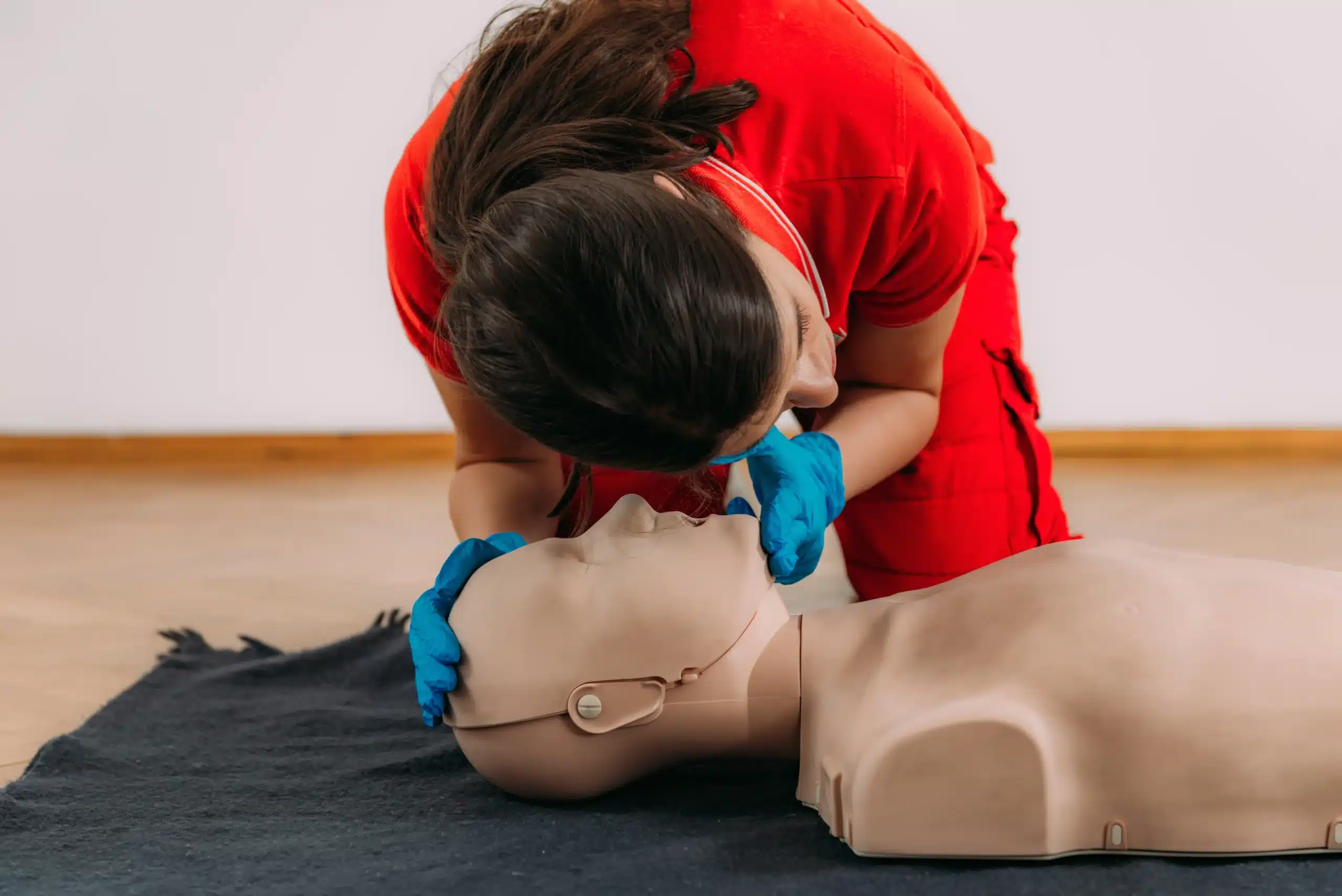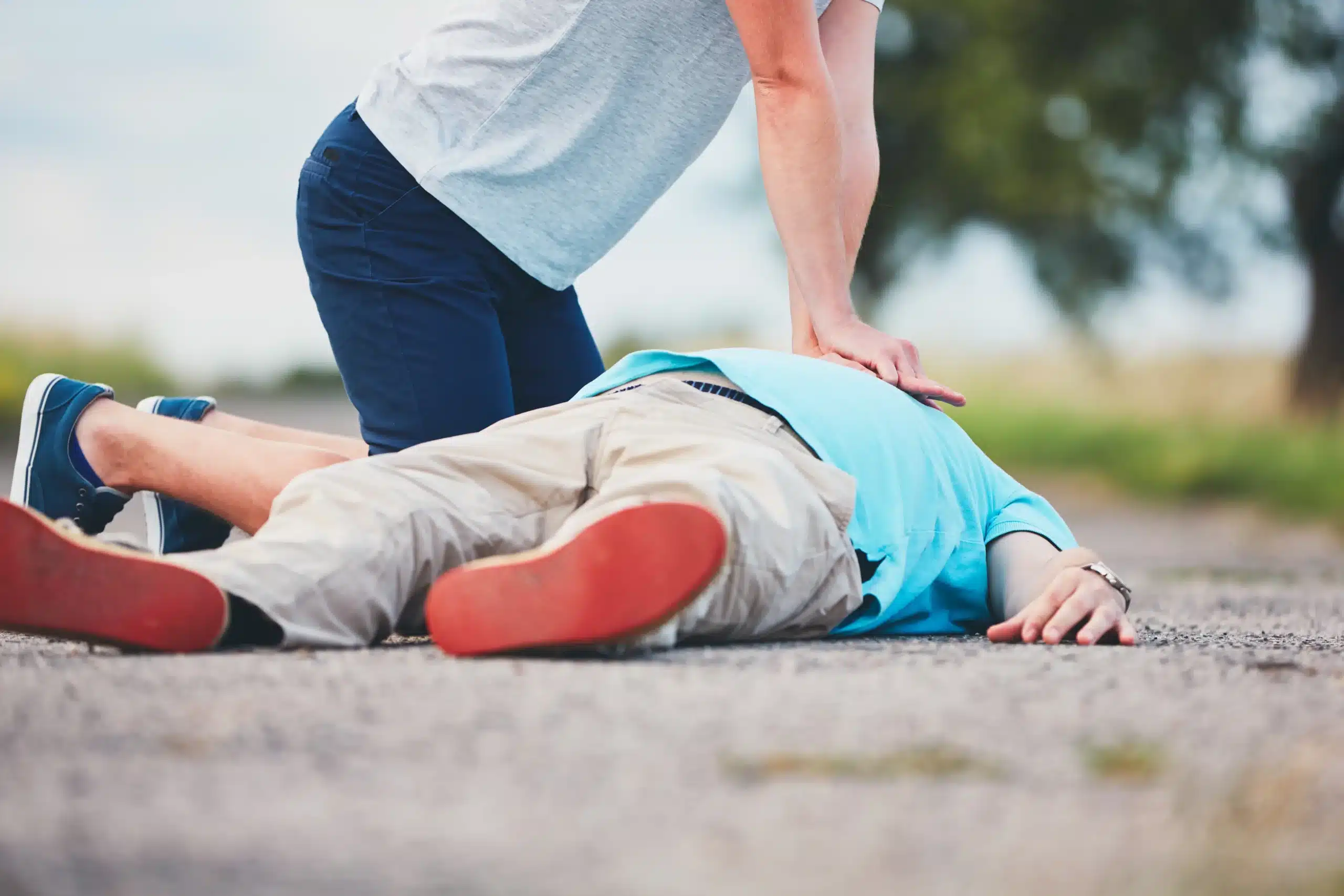Empower yourself to make a difference in Atwater by learning CPR. This article provides a complete overview of CPR classes in Atwater, covering everything from the basics of CPR to finding the right training provider. We’ll explore the different types of CPR certifications available, the costs associated with each, and the various learning formats (in-person, online, and blended). We’ll also delve into the importance of CPR training in creating a safer community and how you can contribute to that safety net. Whether you’re a healthcare professional, a childcare provider, or simply someone who wants to be prepared for emergencies, this guide will help you find the right CPR class in Atwater.
Key Takeaways
- CPR skills empower you to save lives: Learning CPR, whether for professional requirements or personal preparedness, equips you to respond effectively during medical emergencies. Find a course in Atwater that fits your schedule and learning style.
- Atwater offers diverse CPR training options: Explore various CPR and first-aid courses, from basic to advanced certifications like BLS and ACLS. Compare providers like Merced CPR Classes, consider costs, and choose the best format for you (online, in-person, or blended).
- Become a part of a safer Atwater: Learning CPR contributes to a more prepared community. Share the importance of CPR with others and consider group training. A network of trained individuals strengthens Atwater’s ability to respond to emergencies.
What is CPR and Why Does it Matter in Atwater?
CPR stands for cardiopulmonary resuscitation. It’s a lifesaving technique used when someone’s heart stops beating. CPR combines chest compressions and rescue breaths to keep oxygenated blood flowing to the brain and other vital organs until professional medical help arrives. Learning CPR empowers you to respond effectively during emergencies and potentially save a life. Research shows that prompt CPR can significantly improve a person’s chance of survival.
What is CPR and why is it important?
CPR is a critical link in the chain of survival. When someone experiences cardiac arrest, their heart stops pumping blood effectively. This lack of blood flow quickly deprives the brain and other organs of oxygen, leading to irreversible damage and death if not addressed immediately. CPR helps maintain a minimal level of blood circulation and oxygenation, buying precious time until paramedics arrive. This immediate action can dramatically increase the odds of survival and a positive recovery.
Why do people learn CPR?
People choose to learn CPR for a variety of reasons, often centered around a desire to help others and be prepared for emergencies. Many professions, such as healthcare providers, lifeguards, and childcare workers, require CPR certification as part of their job duties. Others learn CPR to protect their loved ones or simply to be equipped to assist in a crisis. In Atwater, CPR training is readily available through various providers offering courses like BLS, ACLS, and PALS, catering to both healthcare professionals and the general public. Knowing CPR can make a profound difference in situations like accidents, near-drownings, or sudden cardiac events, especially around water, as highlighted by experts. CPR training should be a priority for everyone involved in water sports, from casual participants to professional athletes.
CPR training myths
Several myths surrounding CPR can discourage people from seeking training. One common misconception is that CPR can only be performed by medical professionals. This isn’t true. While medical professionals utilize CPR, it’s a skill accessible to anyone willing to learn. Another myth is that you might cause serious harm by performing CPR. In reality, the risks of inaction are far greater than the potential for harm from CPR. Resources like this one address common misconceptions about CPR, emphasizing that even imperfect CPR is better than no CPR at all. Experts further debunk these myths, reinforcing that CPR is a valuable skill for everyone. It’s important to remember that pausing briefly during CPR to call for help or retrieve an AED is acceptable and often necessary.
Find CPR Training in Atwater
Finding the right CPR class in Atwater can feel overwhelming with so many options. This section breaks down the types of classes and key providers to simplify your search.
Types of CPR Classes
Atwater offers various CPR classes to meet different needs. You can find everything from basic CPR and first aid to advanced certifications like BLS (Basic Life Support) and ACLS (Advanced Cardiac Life Support). Healthcare providers often pursue BLS, ACLS, and PALS (Pediatric Advanced Life Support) certifications, while community members often take Heartsaver First Aid CPR AED training. Choosing the right course depends on your specific requirements and goals. Consider what skills you need to gain and who you’ll be using those skills for.
Key Training Providers
Several organizations provide CPR training in and around Atwater. Here are a few options to explore:
Merced CPR Classes
Merced CPR Classes offers a range of American Heart Association (AHA) courses, including BLS, ACLS, PALS, CPR, and First Aid. They are known for their competitive pricing, low-price guarantee, and commitment to customer service. They also offer discounts for group classes.
American Red Cross
The American Red Cross is a nationally recognized organization offering various CPR certification courses. Check their website for course availability and registration information.
First Lady Permanente
First Lady Permanente in nearby Turlock offers a variety of medical training programs and certifications, including CPR. They are approved by the Bureau for Private Postsecondary Education and recognized by many professional organizations.
CPR Test Center
CPR Test Center provides online CPR, AED, First Aid, and BLS certification. Their self-paced courses allow learners to study on their own schedule.
Local Fire Department Classes
Your local fire department may also offer CPR classes. Availability varies, so contact your local fire department directly to inquire about upcoming courses. You can often find contact information on their website or through a quick online search.
What Happens in Atwater CPR Classes?
CPR classes in Atwater, whether for healthcare professionals or the general public, cover essential life-saving skills. You’ll learn to recognize the signs of a cardiac arrest, perform chest compressions, give rescue breaths, and use an automated external defibrillator (AED). Let’s break down what you can expect during your training.
Course length and formats (in-person, online, blended)
Atwater CPR classes offer flexible learning options. You can choose from in-person instruction, online coursework, or a blended learning approach that combines both. Blended learning often involves completing the theoretical portion online at your own pace, followed by an in-person session for hands-on skills practice and evaluation. This format allows you to fit the training around your schedule. For those looking for entirely online options, some providers offer fully online CPR courses.
Hands-on training and practice
In-person Atwater CPR classes provide crucial hands-on training. You’ll practice chest compressions and rescue breaths on mannequins, simulating real-life scenarios. This practical experience builds your confidence and prepares you to respond effectively in an emergency. This hands-on component is essential for mastering the techniques and earning your certification.
Certification process and how long it lasts
Upon successful completion of your CPR course, you’ll receive certification. Most certifications, including those from the American Red Cross and the American Heart Association, are valid for two years. This certification demonstrates your CPR proficiency and may meet workplace or other requirements. Remember to renew your certification before it expires to maintain your skills and qualifications.
Prerequisites and requirements
While the American Heart Association doesn’t have a minimum age requirement for learning CPR, some courses, particularly those for professional rescuers or instructor-level training, may have age restrictions. It’s always best to check the specific requirements of the course you’re interested in to ensure you’re eligible. Generally, a willingness to learn and practice the techniques is all you need to get started with CPR training.
CPR Class Costs and Accessibility
Finding a CPR class that fits your budget is easier than you think. CPR class costs in Atwater, CA vary based on a few factors. Understanding these factors can help you find affordable, high-quality training.
Typical prices for different courses
Different CPR certifications have varying costs. Basic Life Support (BLS certification) is typically less expensive than Advanced Cardiac Life Support (ACLS certification). A basic CPR and First Aid course for the general public will usually cost less than specialized training like Pediatric Advanced Life Support (PALS) or Neonatal Resuscitation Program (NRP). Check with specific providers like Merced CPR Classes for their current pricing.
What affects course costs?
Several things influence the final price of your CPR class. The course format—online, in-person, or blended learning—plays a role. In-person classes often include equipment and instructor fees, which can affect the cost. The training provider also matters, as different organizations and companies have different pricing structures. Finally, the certification level (basic CPR, BLS, ACLS, etc.) influences the overall cost.
Discounts, promotions, and group rates
Many CPR training providers offer discounts. Look for promotions for students, seniors, or military personnel. Group discounts are also common, making training with friends, family, or coworkers more affordable. Contact Merced CPR Classes to learn about special rates for group training and their low price guarantee.
Make CPR classes more affordable
Learning CPR is a valuable investment, and there are ways to make it more accessible. Consider splitting the cost with a friend or family member if you’re taking the class together. Talk to your employer—they may cover the cost of CPR training, especially if it’s relevant to your job. Also, keep an eye out for community CPR events, which sometimes offer free or low-cost training. Sharing your knowledge and encouraging others to prepare for emergencies makes Atwater a safer place for everyone.
Choose the Right CPR Class
Deciding on the right CPR class can feel overwhelming, but it boils down to a few key considerations. By breaking down the process, you can find the perfect fit for your schedule, learning style, and certification requirements.
Determine Your Needs
First, think about why you’re taking a CPR class. Are you required to have CPR certification for your job, or are you simply preparing for an emergency? Do you need basic CPR and first aid training, or a more advanced certification like BLS (Basic Life Support) or ACLS (Advanced Cardiovascular Life Support)? Clearly defining your needs is the first step. For example, healthcare providers often require BLS or ACLS, while teachers or coaches might need basic CPR and first aid.
Compare Courses and Providers
Once you know what type of certification you need, start comparing courses and available providers. CPR certification costs vary depending on the course type, format (online, in-person, or blended), and provider. Look at what each course covers, the total cost, and what’s included (like study materials or certification fees). Don’t forget to check reviews and see what other students say about their experiences. Merced CPR Classes offers a low price guarantee, ensuring affordable training options.
Evaluate Schedules and Locations
Convenience matters. Think about your availability and how it aligns with class schedules. Do you prefer weekday evenings, weekends, or daytime classes? Is the training location easy to reach? Local providers often offer classes throughout the week in various locations, making it easier to find a class that fits your life. Consider factors like travel time and parking when making your decision.
Online vs. In-Person Training
Finally, consider your learning style. Do you thrive in a hands-on, interactive environment, or do you prefer the flexibility of online learning? Both online and in-person CPR training have their advantages. In-person classes offer immediate feedback from instructors and the opportunity to practice skills with other students. Online courses provide more flexibility, allowing you to learn at your own pace and on your own schedule. While certification is valuable, remember that you are not legally required to be certified to help someone in need. Choose the format that best suits your learning preferences and schedule.
Get Ready for Your CPR Class
So, you’ve signed up for a CPR class—that’s fantastic! Now, let’s make sure you’re totally prepared to make the most of your training. This section covers everything you need to know before you walk in the door.
What to bring to class
Keep it simple. A notepad and pen are essential for jotting down key points and any specific instructions your instructor provides. Your instructor will let you know if any other materials, like a CPR mask, are required. You can find more information on what to expect in our post about first aid training in Atwater.
Tips for success
Come ready to participate actively. Ask questions, engage with the demonstrations, and practice the techniques. Remember, the goal is to build confidence so you can act quickly and effectively in a real emergency. Knowing you have these skills can make a real difference, whether you’re at home, at work, or even enjoying water sports. And, think about the ripple effect: your decision to learn CPR might inspire others in your life to do the same.
Maintain your certification
CPR skills require upkeep, so staying current with your certification is crucial. Check your certification card for the expiration date and be sure to renew before it lapses. You can find details about CPR certification in Atwater, including information about costs and different course options, on our blog. Remember, maintaining your certification isn’t just about a piece of paper—it’s about being prepared to help when it matters most.
CPR Training Creates a Safer Community
Learning CPR is about more than just gaining a skill; it’s about contributing to the safety and well-being of Atwater. When more people are trained, our community becomes better equipped to handle emergencies.
Build a safer Atwater
Think about it: the more people in Atwater trained in CPR, the higher the chance someone will be able to help in a medical crisis. This creates a ripple effect, strengthening our community’s resilience. Research shows that prompt CPR can double or triple a person’s chance of survival. The link between CPR training and reduced death rates is clear. Investing in CPR training can have a lasting impact on community health. Atwater residents can find a variety of CPR certification courses to fit their needs through providers like Merced CPR Classes.
How CPR helps in emergencies
CPR training empowers individuals to respond effectively under pressure. Imagine someone experiencing a medical emergency at the lake or during a local sports game. Having trained bystanders can make all the difference while waiting for first responders to arrive. Knowing that there are trained individuals nearby who can perform CPR in an emergency inspires confidence, allowing people to enjoy activities with greater peace of mind.
Encourage everyone to learn CPR
Learning CPR isn’t just a personal achievement; it’s an act of community service. When you take a CPR class, you often inspire others to learn, too. You become an advocate for safety and preparedness, encouraging a culture of care within Atwater. Talk to your friends, family, and coworkers about the importance of CPR. You might be surprised how many people are interested in learning but haven’t taken the first step. Consider taking a group CPR class with friends or colleagues for a fun, supportive learning environment. Merced CPR Classes offers discounts for group bookings.
Related Articles
- Why CPR is a Lifesaving Skill in Healthcare
- Debunking Common CPR Myths Save Lives with Facts
- The Science Behind Effective CPR – Merced CPR Classes
- CPR Certification in Atwater: Your Guide – Merced CPR Classes
- Best Online CPR Classes in Atwater, CA – Merced CPR Classes
Frequently Asked Questions
What if I’m nervous about performing CPR in a real emergency? It’s completely normal to feel apprehensive about using CPR in a real-life situation. That’s why hands-on practice during training is so important. The more you practice, the more confident you’ll become. Remember, even imperfect CPR is better than no CPR. Trust your training and focus on the steps you’ve learned.
How do I choose between online and in-person CPR classes in Atwater? Think about your learning style and schedule. If you prefer a structured environment with immediate feedback, an in-person class is a good choice. If you need more flexibility and learn best at your own pace, an online course might be a better fit. Both options provide the knowledge and skills you need, so it comes down to personal preference.
What kind of CPR certification do I need? The type of certification you need depends on your specific circumstances. Healthcare professionals typically require BLS or ACLS certification. For general knowledge and preparedness, a basic CPR and First Aid certification is usually sufficient. If you’re unsure, contact a training provider like Merced CPR Classes to discuss your needs.
Are there any age restrictions for learning CPR? While there isn’t a strict minimum age for learning CPR, some advanced courses may have age recommendations. It’s always best to check with the specific training provider for their course requirements. Even young children can learn basic CPR techniques.
How can I make CPR training more affordable? Many providers offer discounts for groups, students, or other affiliations. Check with your employer – they may cover the cost of training, especially if it’s job-related. You can also explore community CPR events, which sometimes offer free or low-cost training.
